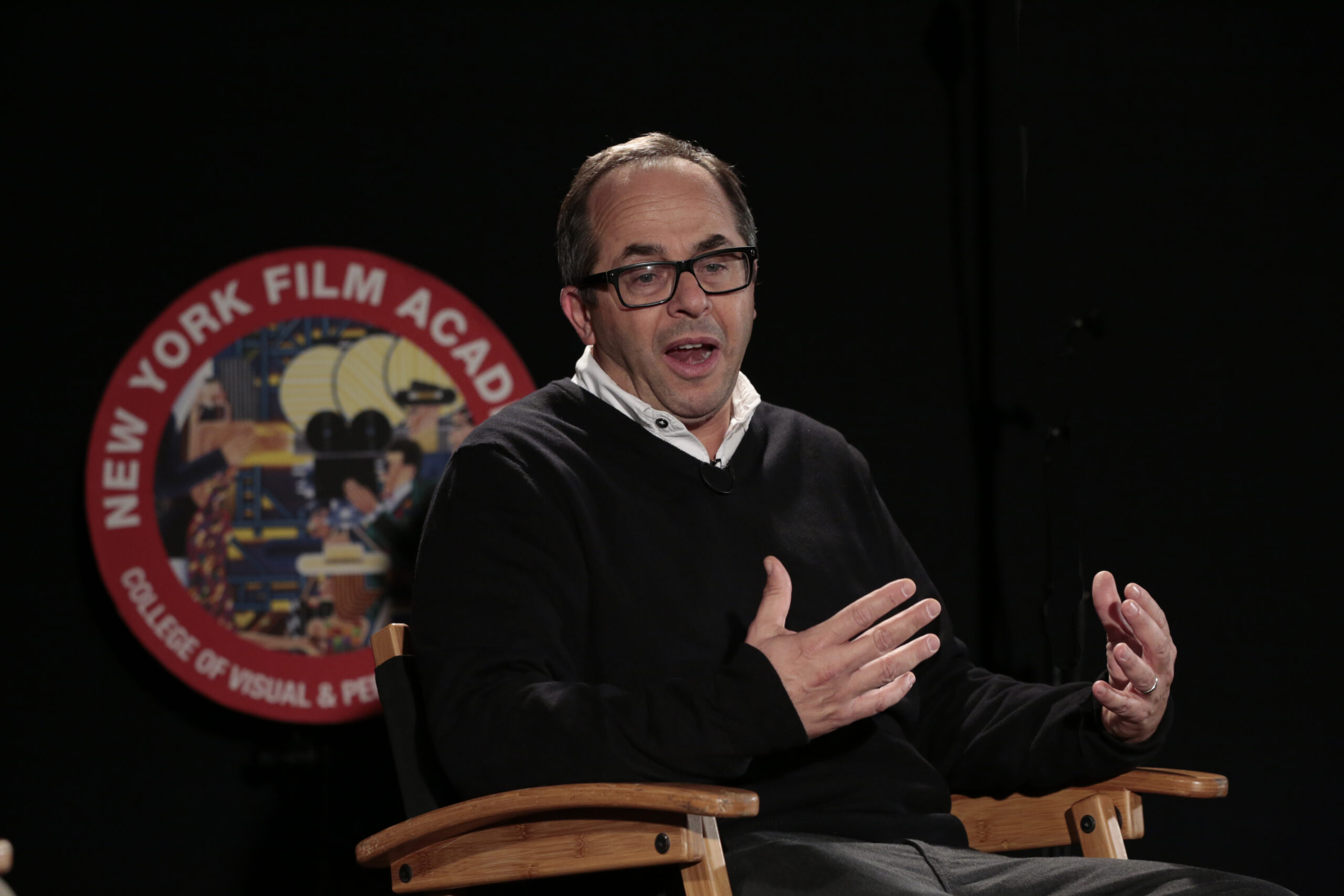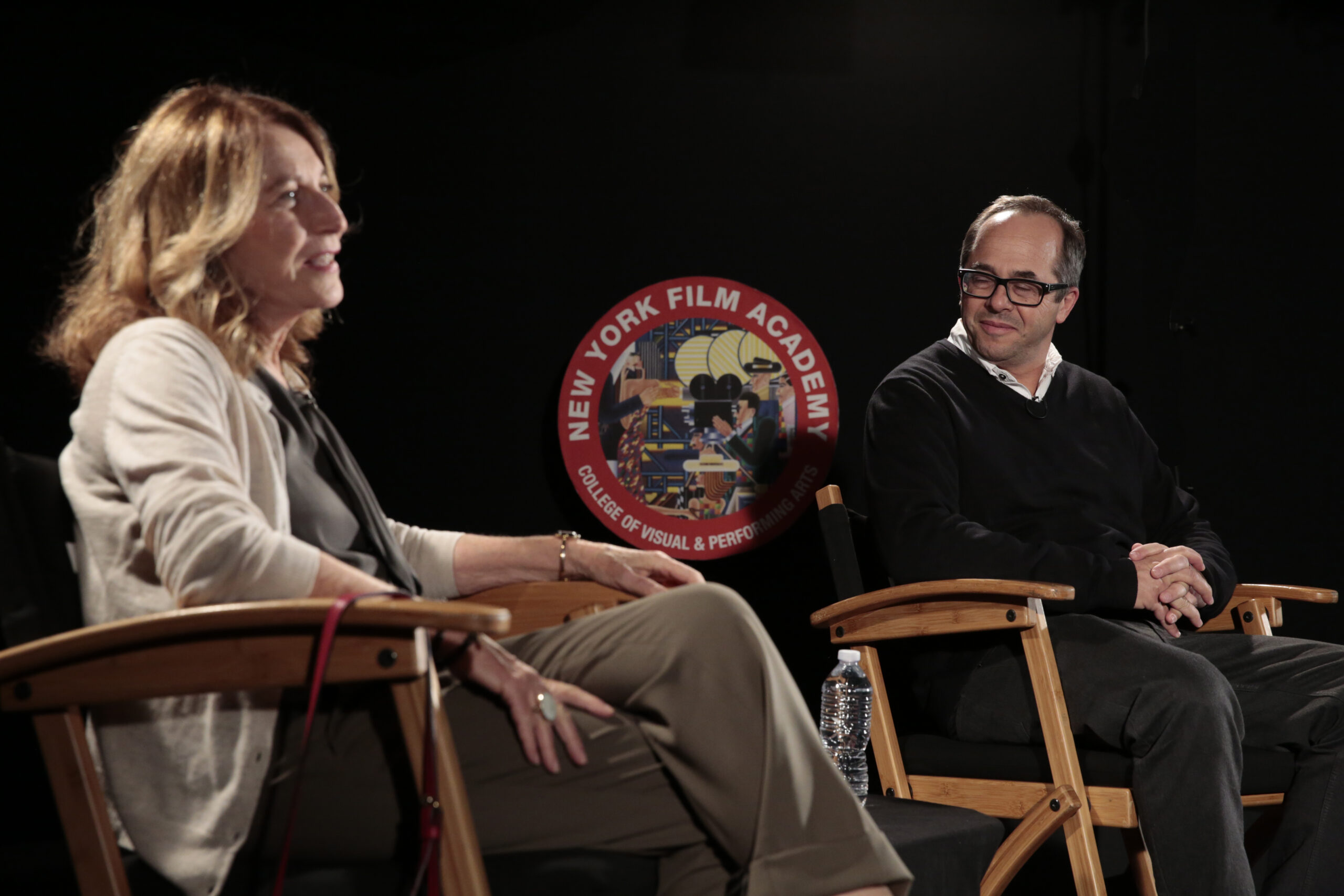On November 9, 2016, Hollywood Manager, Nicholas Bogner, gave a spirited Q and A at the New York Film Academy’s Los Angeles campus. Bogner represents such giants as Millie Bobby Brown (Stranger Things) and Ed Westwick (Gossip Girl). Actors aren’t the only profession Bogner represents. He also counts writers and directors amongst his clientele. Students from every degree program packed the auditorium to hear the head of the literary branch of Affirmative Entertainment give them the inside scoop.

What makes Bogner unique is that he’s worked in almost every aspect of Hollywood. He’s written and sold television pilots, he was an agent, and he’s produced films. It’s this diversity in his career that he attributes to his success. He understands what it takes to sell a script, both from a buyer and seller’s position. That empathy and belief in his clients are often what help make the sale. “You can’t be half in,” Bogner stated, “When people start to say no, you can’t back out.”
This is the key difference between a manager and an agent. An agent will take a script to five places and if they all say no, they’ll ask for re-writes. “I’ll take a script to fifty different places,” Bogner said. “You only need one yes.”
One insightful student asked Bogner what traits he considers red flags when looking to sign writers. Bogner responded, “It’s not just about being great on the page, it’s how good you are in the room.” Filmmaking is more than just an art; it’s also a business. Writers have to impress, placate, and convince executives their project is worth the investment. If a writer consistently fails in pitching the project, they won’t have much of a career at all.
Another student asked about the number of scripts a writer should have prepared. According to Bogner, specs are not necessary anymore. “People finally realized (a spec) was just writing another person’s characters.” What is important is to have two strong scripts.

Do not send nine log lines and ask a manager what they would to read. Time was a factor very much stressed by Bogner. Managers are busy. There are a lot of people trying to get their face seen and their work read. “We’re looking for talent. Yes, it’s daunting, but I’m always looking for that new voice,” Bogner promised. But, managers don’t have time to read lengthy email explaining why they should read an individual’s script or watch their reel.
Instead, Bogner encourages short sweet emails. Lead with the best, most completed work. “Think about what you’re saying, do a little research, and make it quick,” said Bogner. Other effective tools to have when seeking representation are a solid recommendation from someone working within the industry and a short film that’s on the festival circuit.
One last piece of advice, from Bogner, to all creatives is, “I try to avoid following a trend because if you’re aware of a trend, you’re probably at the end of it.” He also suggests not worrying about social media following. “The (work) will bring the followers.”
New York Film Academy would like to thank Mr. Bogner for taking the time to come speak with our students.